The old vicarage that now houses l’Ortolan has had a number of high profile chefs over the years. The latest one is Alan Murchison, who is the executive chef; he was away in Madrid on the evening that we visited. Nick Chappell is the head chef, who moved here after spending seven years at Mallory Park in Warwickshire, following Elliot Lidstone’s departure to The Empress.
There are a number of dining areas at the restaurant, including a conservatory and a private dining room upstairs. The restaurant can seat 60 or so diners, with a further 35 in the private room; nine chefs were cooking for a full house on the night of our visit. The dining room is simply decorated, carpeted and with precisely directed lighting. Tables are large though quite tightly packed, set with white linen. Some rather intrusive music played in the background, a little too loudly for my taste; complimentary wi-fi is offered to guests. The menu is firmly in British/French territory and was quite short, with just three choices for each course. There were tasting menus too, but these seemed to be combinations of the à la carte dishes. I am all for short menus, but this seemed just a bit limited in choice for me e.g. just a single fish course on offer for diners that do not eat meat. Three courses were £67.
The wine list had just over 250 different selections, with example wines being Domaine Chaude Ecuelle Chablis at £37 for a wine that you can find in a shop for £8 and Domain Valette Pouilly Fuissé 2007 at £79 for a wine that retails at £20. Dry River Pinot Noir Martinborough from Wairarapa was £135 for a wine you can find in the high street for £57, and Chateau Figeac 1990 was a far from kind £519 for a wine that will set you back £161 in the shops. Overall, mark-ups are quite high, at between three and four times retail price. Mineral water was £3.95 a bottle. The sommelier was excellent, able to answer questions in considerable detail about his list.
A few nibbles appeared as we looked at the menu: olives and a smooth chicken liver parfait with savoury crisps. The formal amuse-bouche was pork and apple terrine, with Granny Smith apple crisp, apple jelly and caper dressing. This was a good terrine, smooth in texture and with plenty of pork taste, the acidity of the apples balancing the richness of the pork, the capers adding an extra dimension to the dish (16/20). My only quibble would be having a terrine as the amuse bouche when one of only three starters was also a terrine. Breads are made from scratch in the kitchen, and were very good: sourdough, focaccia with rosemary and sea salt, granary bread and lemon and thyme bread (17/20).
Brixham crab was marinated in lime juice and mirin, along with tuna that was seared but served cold, a little pickled ginger, compressed water melon, wasabi “caviar” and rice crisps. This was pleasant, though the wasabi was not the real thing but rather something from a tube, and the crisps were rather salty (15/20). Ballotine of rabbit and foie gras was served with pistachio raisin puree, curried granola (breakfast snack food made from oats and nuts) and a jelly of verjus (juice of unripe grapes). This was the dish of the meal for me, the ballotine having lovely texture and deep flavour, the granola providing an effective extra texture to the dish, the verjus providing acidity and the controlled curry an additional flavour note (17/20).
Salmon confit was poached in liquorice, served with coconut, pink grapefruit, liquorice crisps and black radish. The balance of the dish was reasonable but the texture of the salmon seemed a little over-soft to me, even for confit (14/20). My main course was suckling pig in assorted forms: cutlet, shoulder, belly, leg and a trotter stuffed with chicken mousse and St George mushrooms. This had several garnishes: blackened Roscoff onion, caramelised onion puree, pumpkin tortellini, roasted pumpkin, broccoli and pomegranate seeds. This was enjoyable (though the suckling pig flavour was not remotely in the league of those I ate in Italy the week before), the pork nicely cooked though the trotter was a little salty. It felt like a rather over-complicated dish, but was quite harmonious (16/20). Less successful was stone bass with razor clam, saffron jelly, rice pasta, samphire, parsley puree and a sauce of crab bisque. The bass was cooked nicely enough but the razor cram was distinctly chewy, and the crab bisque lacked much crab flavour (13/20).
A pre-dessert consisted of coconut espuma with mango puree, coriander and black pepper. Oddly, although my wife and I both had the same dish, they tasted quite different. In one the pepper was subtle and worked well, in the other the pepper was very strong indeed (16/20 for the subtle one). For dessert I had a plate of chocolate elements: chocolate macaroon, chocolate rock, white chocolate parfait, salted chocolate and a transparent sphere containing chocolate mousse. The mousse was the best of these, though I do not know what the sphere really added other than allowing the chefs to play with their toys. The macaroon was a little dense in texture, the salted chocolate a little too salty for me, and the chocolate rock was a little too close in texture to its name; adding micro leaves to a chocolate dessert is not a good plan either (just about 15/20 once I had scraped the leaves off). Cheese was from a company called Turner’s Fine Foods in Kent, and was in reasonable condition.
Coffee (£4.50) was pleasant, served with a selection of petit fours: black chocolate with passion fruit, a Madeleine, Turkish delight and a white chocolate – all nice enough, the Madeleine not as light as it might have been (15/20). Service was very good, our German waitress friendly and enthusiastic, if a little too keen to sell us additional water and wine. Topping up was a little erratic, but overall the service experience was good. The bill came to £129 a head, including a good bottle of Riesling and a glass of dessert wine. It seemed like a slightly large bill relative to what was delivered on the plate.
Overall this was a pleasant dining experience, with a nice room, friendly service and slightly uneven but generally good and nicely presented food. There seemed to be a tendency to put more elements on the plate than was really needed, which always makes it hard for the kitchen to deliver all of them optimally. I notice this tendency in many ambitious British kitchens, yet just last week I had a near perfect meal at three Michelin star Le Calandre where the dishes were strikingly simple, yet had dazzling flavour. Often in cooking, less is paradoxically more.

Ortolan
Church Lane, Shinfield, England, RG2 9BY, United Kingdom
- Map
- 01189 888 500
- Restaurant website
-
 building 2
building 2

-
 building
building

-
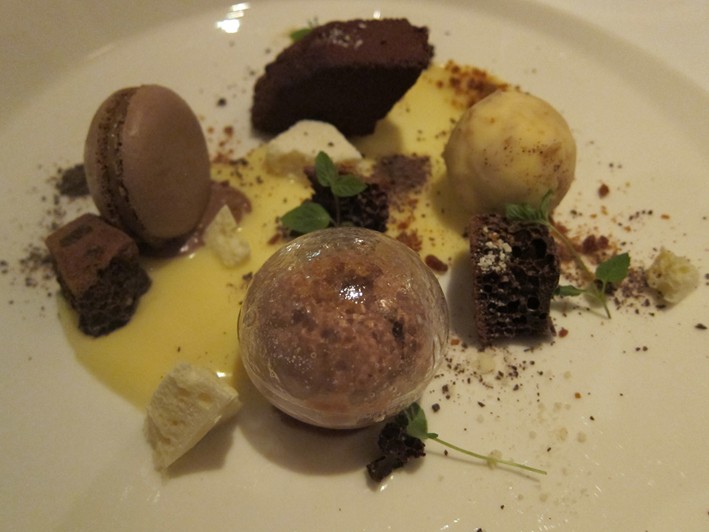 chocolate
chocolate

-
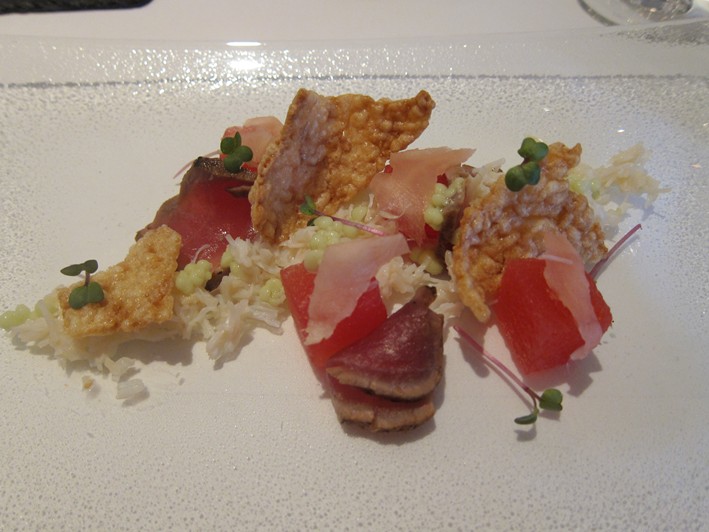 crab and tuna
crab and tuna

-
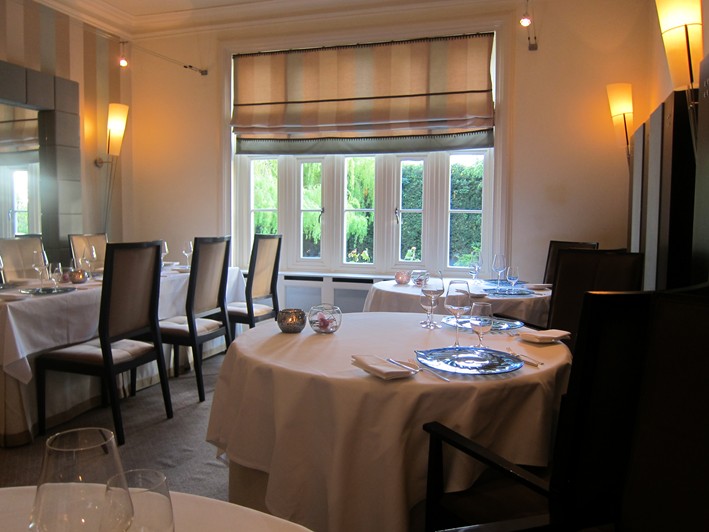 dining room 2
dining room 2

-
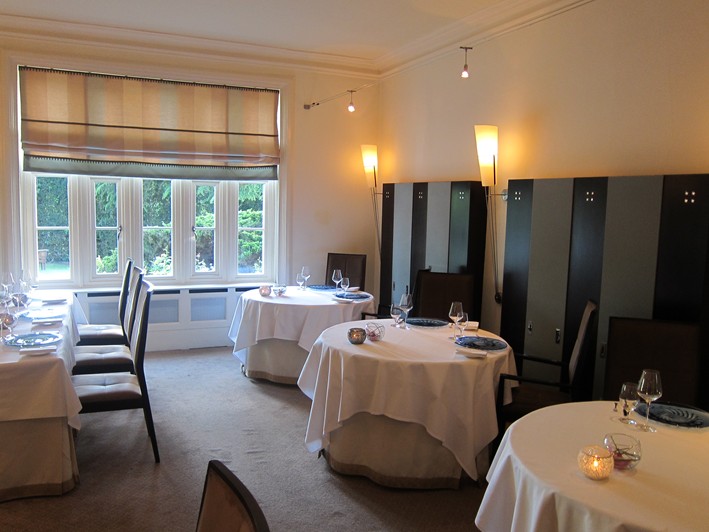 dining room
dining room

-
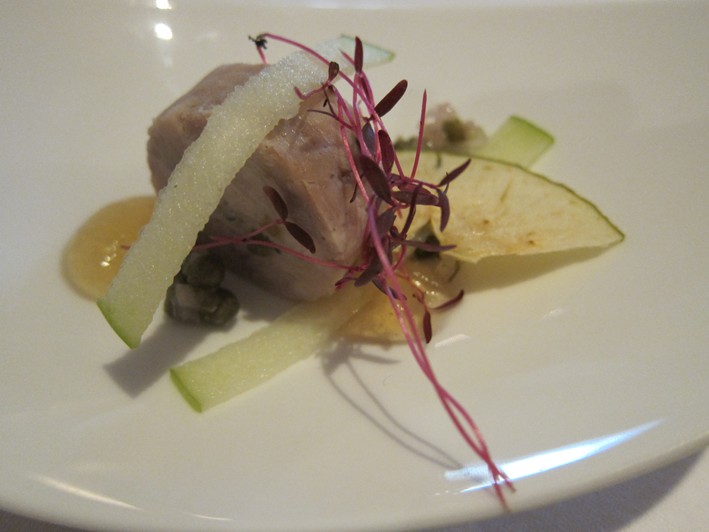 duck liver terrine
duck liver terrine

-
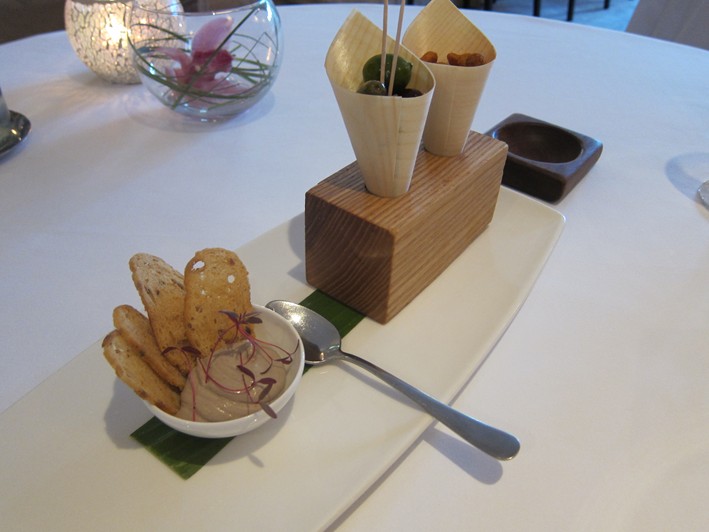 nbbles
nbbles

-
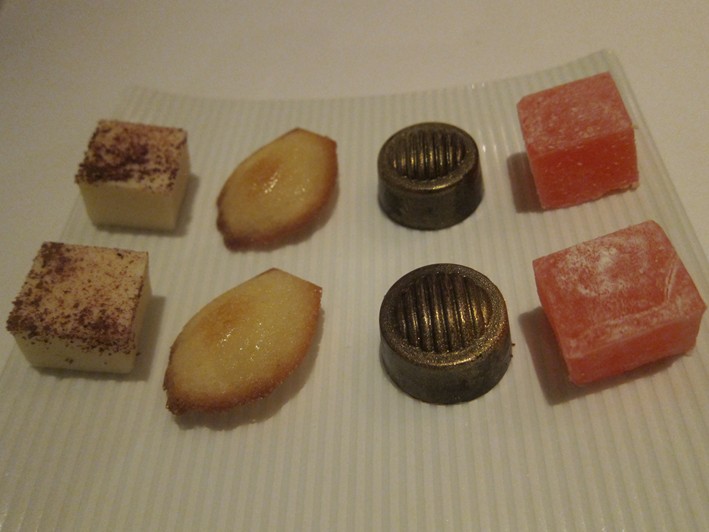 petit fours
petit fours

-
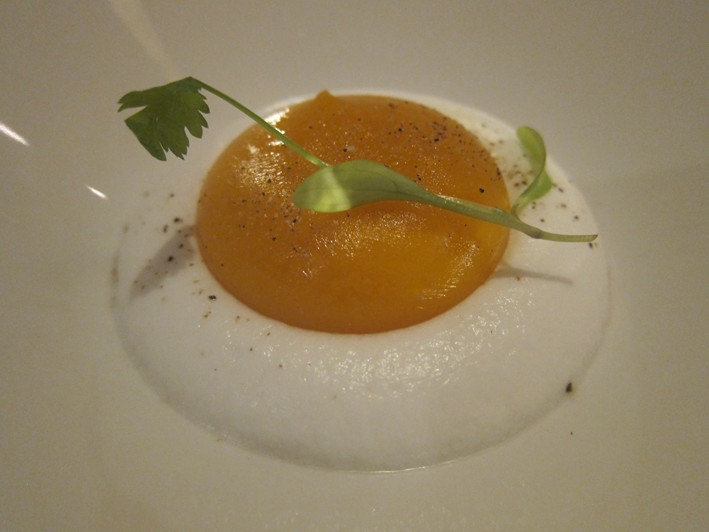 pre dessert
pre dessert

-
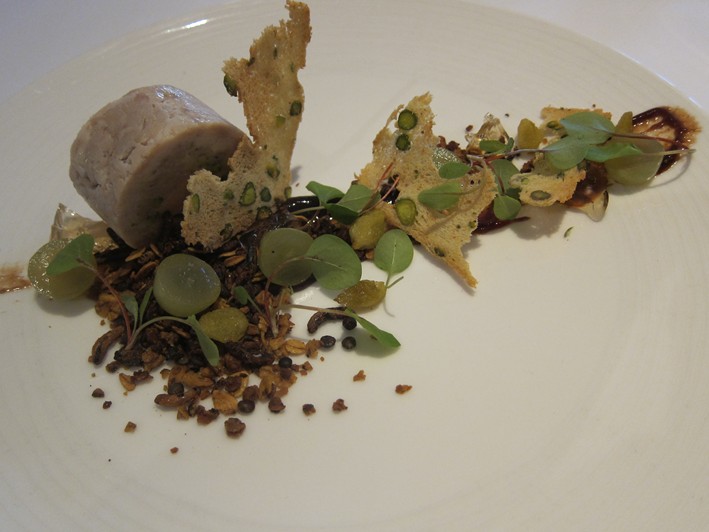 rabbit terrine
rabbit terrine

-
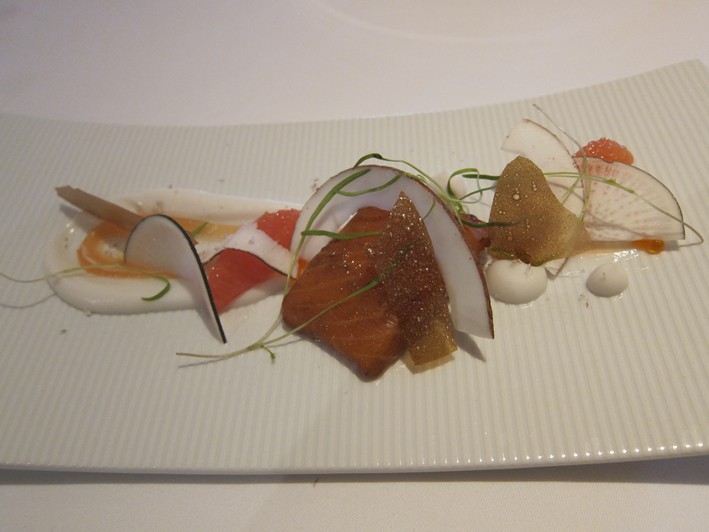 salmon
salmon

-
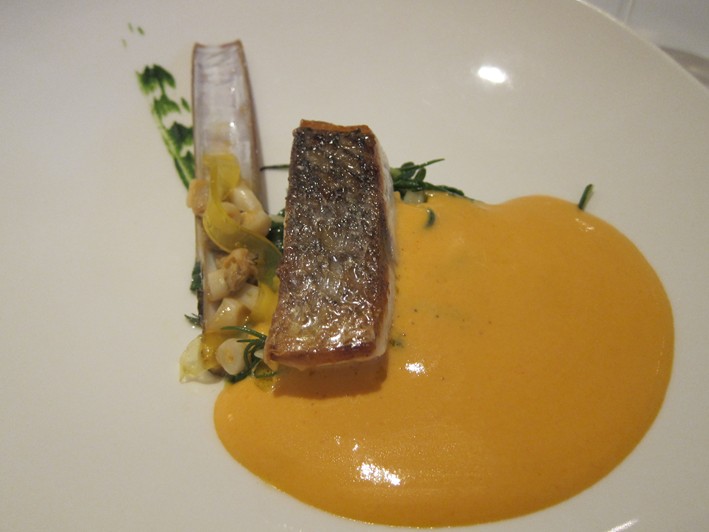 stone bass
stone bass

-
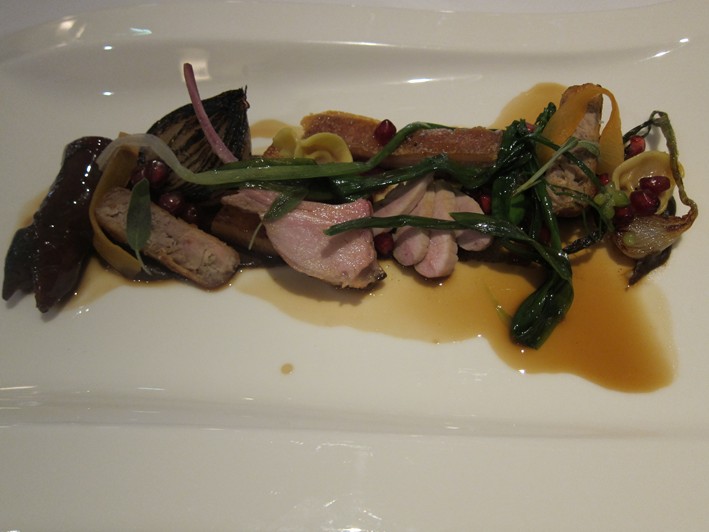 suckling pig
suckling pig

-
 front
front

-
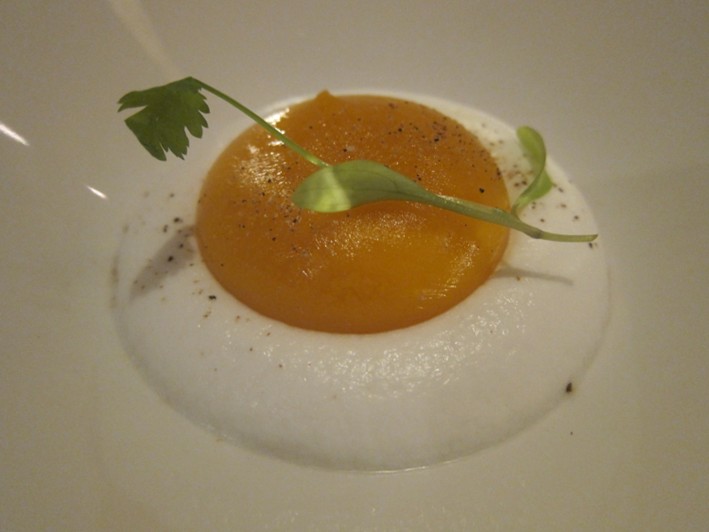 mango
mango

-
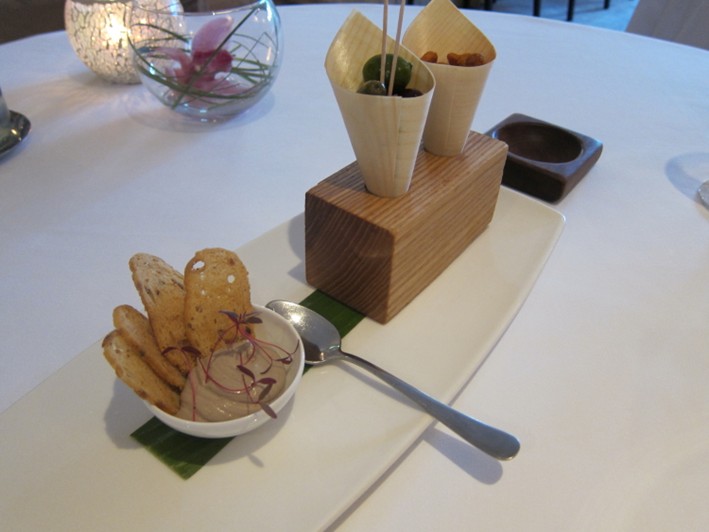 nibbles
nibbles

-
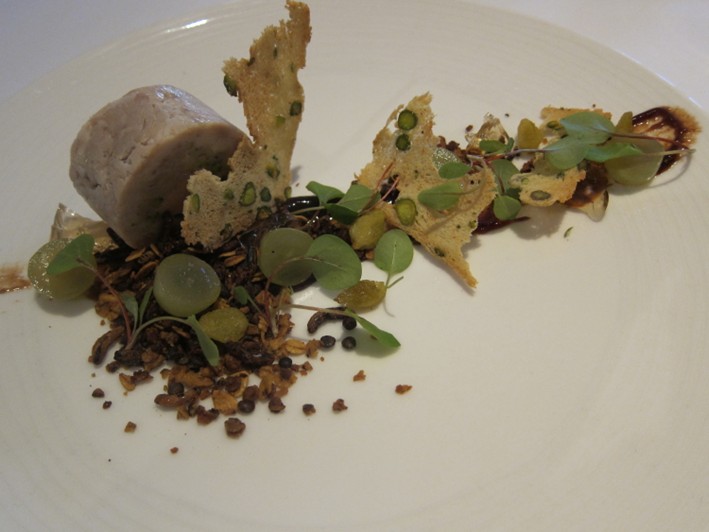 rabbit and foie gras terrine
rabbit and foie gras terrine

British cuisine
 Average Price £105
Price I paid £129
Value for money
££££££
Overall rating 15/20
Michelin star
Average Price £105
Price I paid £129
Value for money
££££££
Overall rating 15/20
Michelin star

The type of cuisine served at this restaurant
Typical price for three courses and modest wine
What I actually paid on this particular visit
Calculated from overall rating/average price: £££££ is best, £ least good
Score for the food from 1 to 20, with 20 being world class
Currently has at least one Michelin star
Add a comment
User comments
×
![]()



















Name unavailable
Couldn't agree more with your comments regarding the number of elements on the plate of you typical aspirational UK restaurant. I think it's largely down to the expectations of UK punters, who would probably send back an immaculately-sourced, immaculately-cooked piece of grilled fish if it arrived nakedly resplendent on the plate. Hopefully places like Hedone will begin to change the mind-set ,but I fear it will take time.